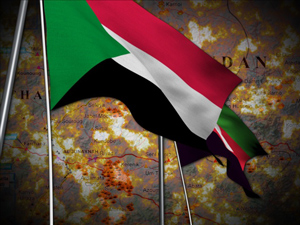-Contributing Writer-

(FinalCall.com) – “An estimated $4 billion are unaccounted for or, simply put, stolen by former and current (government) officials, as well as corrupt individuals with close ties to government officials,” wrote Southern Sudan President Silva Kiir in a letter to 75 current and former government officials.
The May 3rd dated letter offered amnesty for officials and individuals with government ties that returned the money, according to the Reuters news service. The country’s information minister, Barnaba Benjamin, confirmed the letters authenticity, AP reported.
This mismanagement of funds is not new. In fact it goes back prior to July of 2011, when Southern Sudan seceded in a referendum and became Africa’s newest sovereign nation.
“The high expectations of socio-economic development, education, health care facilities, schools and agro-industry … have produced zero results,” wrote Professor David de Chand, in a 2010 or 11 edition of the Sudan Vision. The above is what the government of Southern Sudan was unable to do with the $10 billion it received from oil revenues over a five-year period.
According to Professor Chand, this happened “because there is no strategic planning, mismanagement, rampant corruption, disorganization and the lack or the absence thereof of fiscal responsibility and prioritization of programs.”
Mismanagement and corruption seems to have plagued Southern Sudan’s government since the 2005 peace deal that ended its civil war with Sudan. Lebanon’s Daily Star revealed in the recent country’s auditor general report that nearly $1.5 billion in government funds were unaccounted for from the 2005-06 fiscal year.
Another scandal in 2009, reported The Globe & Mail, “more than $2 billion in government funds went missing when bogus companies were set up to supply sorghum, a staple crop.”
“We fought for freedom, justice and equality,” the president’s letter reads. “Yet once we got to power, we forget what we fought for and began to enrich ourselves at the expense of our people.”
Kiir has reached out to leaders from around the world, including Kenya, to assist him in curbing corruption. Juba has opened an account in a Kenyan bank where anyone who has stolen government funds can return them without being prosecuted. So far the government has recovered $60 million of the $4 billion in missing funds.
Other developments include anti-corruption laws that will be established to “punish such individuals.” In addition Kiir issued a decree making it mandatory that public officials declare their assets to the South Sudan Anti-Corruption Commission.
The stolen funds appear to be from “skimming off oil revenues” and through a 2009 scandal “where billions of dollars … of grain were ordered but not delivered,” reported the International Business Times. Kiir’s letter said, “Most of these funds have been taken out of the country and deposited in foreign accounts. Some have purchased properties, often paid in cash.”
The anti-corruption commission, for its efforts, has little to show for itself. Since its creation in 2009, by the end of last year it submitted only six corruption cases for prosecution.
Corruption is only part of Southern Sudan’s problems. Though the country is awash in oil reserves, Africa’s 54th nation has plunged into an economic crisis. The crises stems from a dispute with Sudan that saw “South Sudan turn off oil production earlier this year,” according to Stars and Stripes. The tension rose when Sudan began taking South Sudan oil at its Red Sea port to compensate for what it called unpaid fees.
This prompted the South to halt all output in January, “shutting off the lifeline of both economies,” reported Uganda’s New Vision. And even though the move was supposed to, “stop alleged Sudanese theft of oil,” it also cost the South 98 percent of its oil revenue and plunged it into a serious economic crisis. Sudan’s economy has also suffered when 75 percent of its oil went to South Sudan when it seceded last July.
Sudan and South Sudan hold high-level talks in Addis Ababa, Ethiopia.
According to the Los Angeles Times, “seeking to resolve disputes over oil revenues and their shared border, the first negotiations since a dangerous slide toward war in April,” both nations came to the table after the United Nations threatened sanctions unless both sides reached a peace deal. This came after each side withdrew from disputed oil-producing areas near the border that they had occupied — South Sudan from Heglig and Sudan from Abvei.
(Jehron Muhammad writes from Philadelphia and can be reached at [email protected].)












